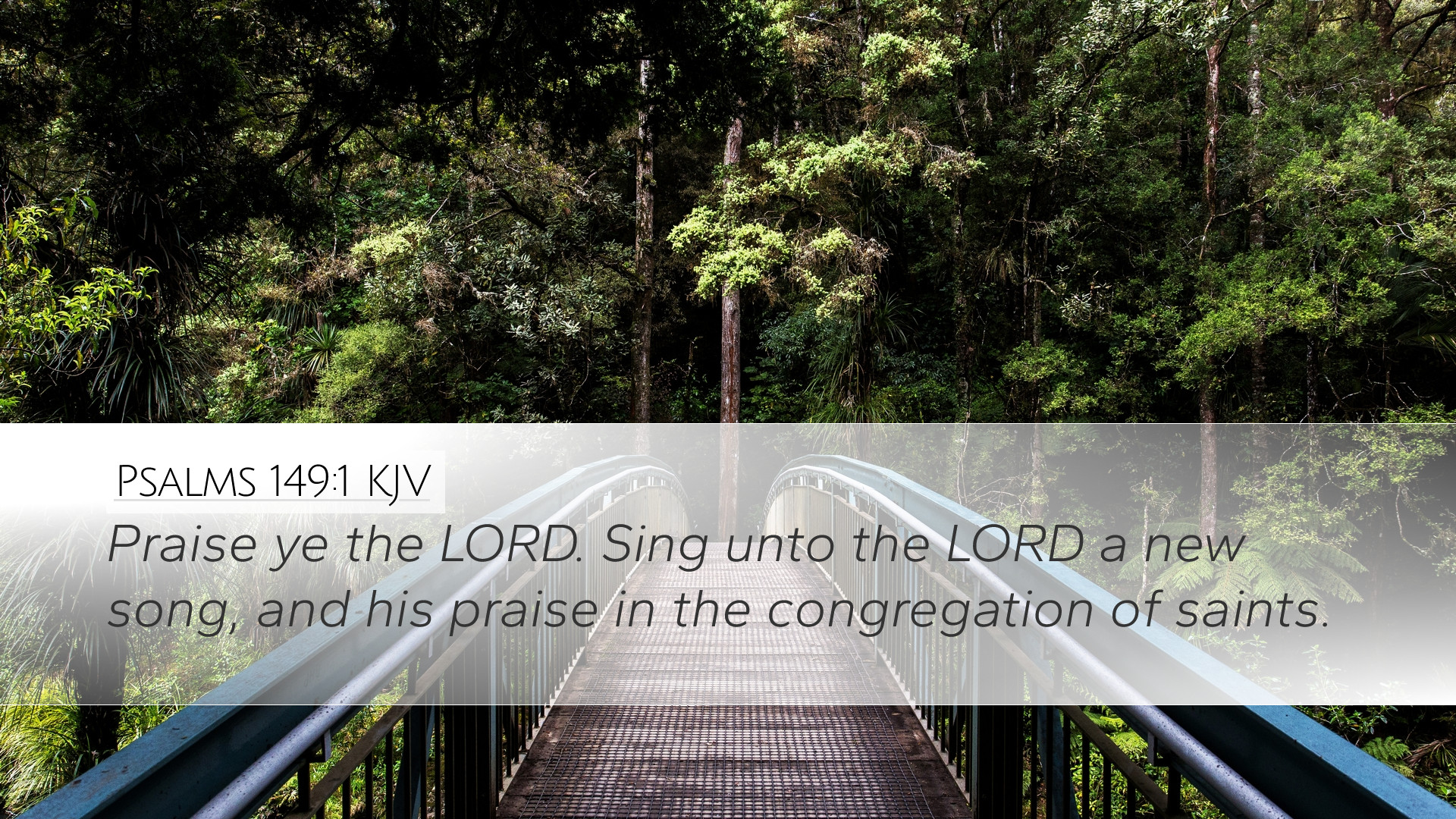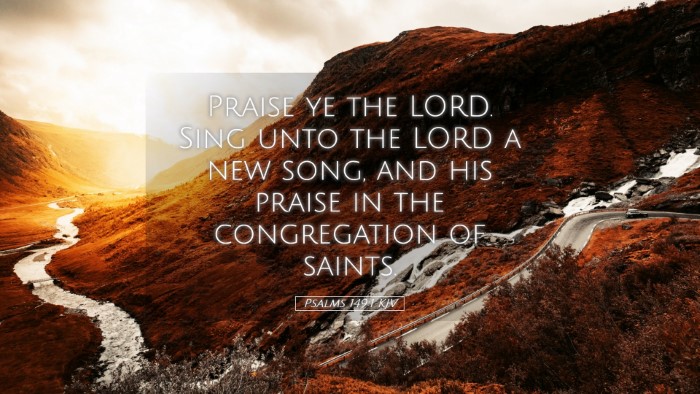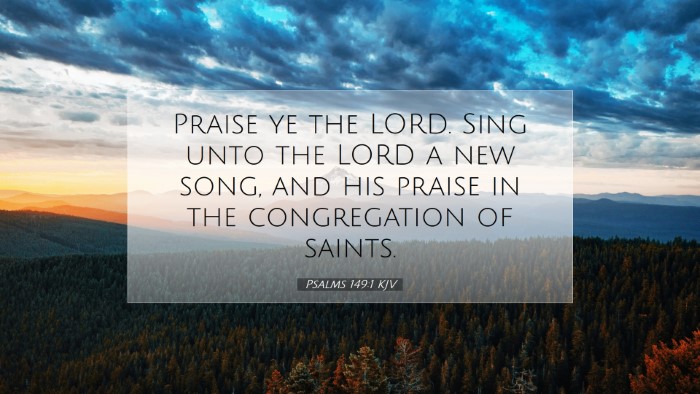Psalms 149:1 Commentary
Verse: "Praise ye the LORD. Sing unto the LORD a new song, and his praise in the congregation of saints." (Psalms 149:1)
Introduction
This verse opens the 149th Psalm, a text rich with themes of praise, worship, and the joyous expression of faith within the community of believers. It serves as an exhortation for the faithful to engage actively in worship, reaffirming the central role of music and song in glorifying God.
Examination of the Text
The text invites the reader to consider several key themes:
- The Call to Praise: The phrase "Praise ye the LORD" serves as a direct command, indicating the imperative nature of worship.
- A New Song: The directive to "Sing unto the LORD a new song" suggests a fresh and vibrant expression of praise, highlighting the ongoing revolution of God's mercies in the lives of His people.
- The Community Aspect: "In the congregation of saints" underscores the importance of communal worship, as believers gather to celebrate God's goodness together.
Commentary Insights
Matthew Henry's Insights
Matthew Henry emphasizes the nature of praise as an essential duty of the believer. He notes, “We are commanded to praise the Lord, to express our gratitude and joy in a way that glorifies Him.” He reflects on the corporate aspect of worship, arguing that “the congregation is not merely a collection of individual worshipers but serves as a vital body where each praises the Creator.” Henry also interprets "a new song" as reflective of both personal and corporate experiences of God's grace: “With each new mercy received, there arises a reason for fresh praise, as our lives are a continual testament to God's unfailing love.”
Albert Barnes' Reflections
Albert Barnes elaborates on the idea of singing a "new song." He states, “This does not imply an abandonment of the old but invites believers to express their gratitude through contemporary means of worship and expression.” He stresses that this new song symbolizes the ongoing work of God in the believer's life, which should inspire a continual outpouring of praise. Barnes also discusses the significance of “the congregation of saints,” remarking that communal worship plays a crucial role in sustaining Christian fellowship and fostering a collective spirit of devotion: “In the gathering, believers unify their voices to echo the truth of God’s grace.”
Adam Clarke's Analysis
Adam Clarke provides a nuanced understanding of the psalmist’s intent by highlighting the phrase "Sing unto the LORD a new song." He points out that such a command is not merely for musical innovation but also reflects inner transformations: “The new song is a metaphor for the fresh experiences of divine goodness bestowed upon God’s people.” Clarke posits that this verse acts as an encouragement for believers to share their testimonies of God's miraculous works with one another in worship. Furthermore, he notes that worship in the presence of "saints" signifies mutual edification among believers: “There is strength and inspiration drawn from being in a community that praises God together.”
Theological Implications
This verse has significant implications for both personal and corporate worship within the church. The instruction to engage in praise is tied to the very nature of who God is—a being worthy of adoration. It highlights God’s active role in the lives of His people, as their experiences of grace and mercy should inspire authentic worship.
The concept of singing a “new song” can also imply a theological understanding of continual renewal and transformation within the believer's life, as well as the church's history. It reflects the dynamic nature of faith, where the believer’s response to God’s mercies grows in depth and variety over time.
Application for Today
The call to praise in Psalms 149:1 invites modern Christians to reflect on their expressions of worship. It challenges them to consider if their worship is stale or vibrant, encouraging a posture of creativity and authenticity in their connection with God. Here are a few practical applications:
- Encourage New Expressions of Worship: Churches can foster environments that embrace a variety of musical styles and forms of worship, helping the congregation to engage in fresh expressions of faith.
- Create Community Opportunities: Organizing community worship nights or gatherings helps to embody the idea of praise in the congregation, uniting voices in collective worship.
- Share Testimonies: Providing space for testimony sharing can lead to mutual encouragement, showcasing God's continual work in the lives of His people and fostering a culture of gratitude.
Concluding Thoughts
Psalms 149:1 serves as a summons to worship that invites believers into the joyous response of adoration for a loving God. When approached with sincerity, this verse enriches the lives of individuals and communities as they lift their voices in praise. The insights from Matthew Henry, Albert Barnes, and Adam Clarke remind us of the timeless relevance of this ancient text and the imperative nature of worship in the believer's life.


